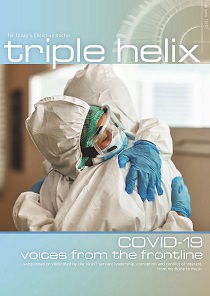The British Medical Association (BMA) held its annual meeting on 15 September. Usually a four-day residential event with 600 delegates, it was reduced to one day online due to COVID. Much debate focussed on urgent COVID-related issues, but there was also a helpful open session on embedding equalities and inclusion in the light of COVID, during which I was able to remind delegates that faith is often the 'forgotten protected characteristic' of the Equality Act. We should see faith perspectives in healthcare as valuable contributions, rather than simply problems.
However, two debated motions revealed a much more concerning agenda. The first, regarding transgender issues, went significantly beyond the broad principles of ensuring dignity and respect for transgender staff and patients in the NHS. It proposed removing any medical input to legal gender transition and strengthening the ability of under 18s to access full gender transition treatment, despite the current controversy surrounding the Tavistock Clinic and concerns over children receiving life-changing treatments without sufficient safeguards and reflection. Concerns over trans rights trumping those of women's rights in access to gendered spaces (such as domestic refuges) were also brushed aside. A helpful briefing paper from the BMA ethics team was hastily withdrawn and urgently rewritten to excise certain paragraphs deemed inappropriate, although with no explanation of why. There was a distinct feeling that the only opinion deemed valid was that of full-on trans affirmation; the motion was passed in all its parts, but with an unusually high abstention rate (14-18% for each part), suggesting unease amongst many delegates.
A second motion proposed the continuation of telemedicine provision of home abortion, so-called 'pills by post' that was brought in (up to ten weeks' gestation) as an emergency measure during COVID in March. This has long been an aim of abortion lobbyists, who are using the COVID measures as a 'foot in the door' to continue them. Speakers stated the many benefits of the measures, such as reduced waiting times and even better safeguarding against domestic abuse. Powerful speeches were made against the motion by Melody Redman and Naomi Beer, highlighting evidence from leaked NHS communications in May showing deeply concerning complications, including two maternal deaths, a stillborn at 28 weeks and a near-miss at 32 weeks. However, proponents of the motion, and even the chair of the BMA ethics committee, simply dismissed this evidence as 'misleading', instead repeating the mantra from abortion providers that all is safe and well.

Printed from: https://archive.cmf.org.uk/resources/publications/content/?context=article&id=27167































